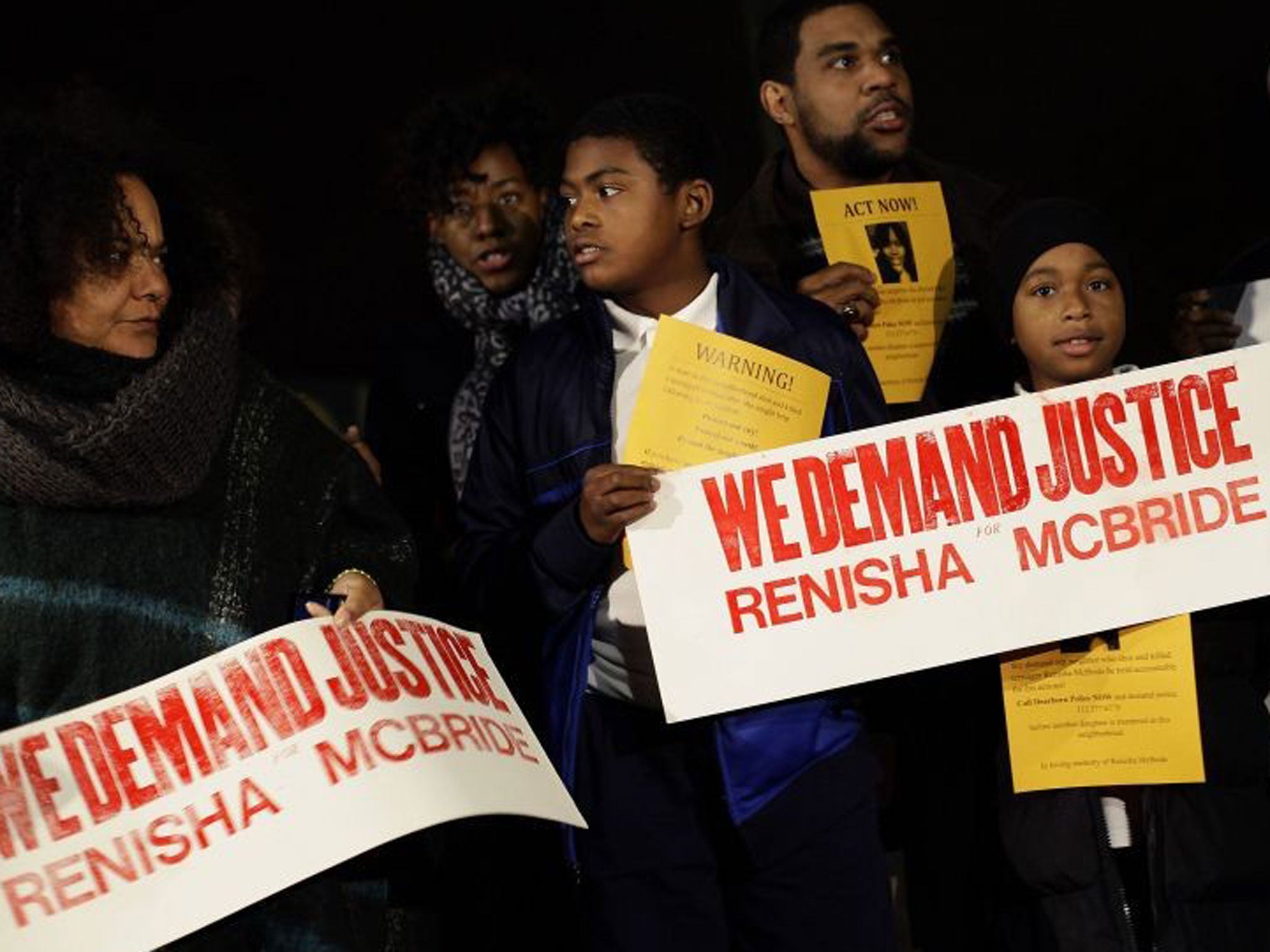Renisha McBride: black female victims of crime seem to be invisible in the media bubble
We've seen decades of dehumanising narratives about black people. Was Renisha McBride killed because she was implicitly considered suspicious?

Your support helps us to tell the story
From reproductive rights to climate change to Big Tech, The Independent is on the ground when the story is developing. Whether it's investigating the financials of Elon Musk's pro-Trump PAC or producing our latest documentary, 'The A Word', which shines a light on the American women fighting for reproductive rights, we know how important it is to parse out the facts from the messaging.
At such a critical moment in US history, we need reporters on the ground. Your donation allows us to keep sending journalists to speak to both sides of the story.
The Independent is trusted by Americans across the entire political spectrum. And unlike many other quality news outlets, we choose not to lock Americans out of our reporting and analysis with paywalls. We believe quality journalism should be available to everyone, paid for by those who can afford it.
Your support makes all the difference.In the early hours of 2 November, 19 year-old Renisha McBride was killed by an as-yet unidentified gunman on the porch of his home in the middle-class Detroit suburb of Dearborn Heights. She was reportedly seeking help following an earlier car accident. She was unarmed; she was also black.
This much is known, but further circumstances surrounding her death are in dispute. The gunman claims to have shot her accidentally, but while the police say that she was shot in the face, her family maintain that she was shot in the back of the head as she walked away from the house. No charges have so far been brought in the case, but the feeling among many is that Renisha was killed for being black in the wrong place.
Her death is reminiscent of 17 year-old Trayvon Martin, shot dead in February 2012 on his way back to his father’s house from the shops by neighbourhood watch commander George Zimmerman. Like Renisha, he too was unarmed, but it looks like they were both killed because they were implicitly considered suspicious, in part the result of decades of dehumanising narratives about black people that are both historical and reinforced by media stereotypes.
Trayvon’s case was initially under-reported before receiving international prominence, but Renisha’s death, like those of Rekia Boyd, who was wrongfully killed by a police officer in Chicago, or Aiyana Jones, the seven year-old shot dead in a bungled police raid on her grandmother’s house, has not gained traction in the public imagination like Trayvon’s. Black women are often portrayed in narrow stereotypes: often “angry” or “strong and unyielding”, both an object of lust and derision. But when it comes to black female victims of crime, very few cases pierce the media bubble – by and large they are seemingly invisible.
Contrast the widespread coverage of George Zimmerman’s acquittal under Florida’s Stand Your Ground Laws, (which permit a person to use deadly force in self-defence when they feel threatened with “great bodily harm”, the application of which often discriminates along racial lines), with the conviction of Marissa Alexander, a black woman who in 2010 fired warning shots in self defence after her abusive husband threatened to kill her. He was not harmed, but although she had no criminal record a jury took just 12 minutes to convict her earlier this year after it was decided that she could not claim immunity under Stand Your Ground. She was sentenced to 20 years in prison, though she has since been granted an appeal.
As Michigan also has Stand Your Ground legislation, there is a possibility that the gunman who killed Renisha may evoke the law as a defence if charged. His attorney has already told news organisations that her client “acted as a reasonable person would who was in fear for his life.” If so, the prospect of acquittal would not be inconceivable. As Trayvon’s mother testified before Congress this week: “The person that shot and killed my son is walking the streets today,” she said. “We need to do something about this law when our kids cannot feel safe in our own community.”
Prosecutors say that no charges have been brought against the gunman while they await further police investigation. Reverend Al Sharpton’s spokesman summed up the community’s frustrations: “When these incidents happen often times investigators try to prove guilt or not guilty in the investigation, but action was taken that led to a murder. Whether guilty or not guilty that should be for the jury and court to decide.”
The dehumanisation of black women and men results in innocent people carrying the burden of suspicion for no other reason than the colour of their skin. Their challenge then lies in guessing where is safe, because if you are deemed to be out of place, like a young black woman in a predominantly white, middle-class neighbourhood, this presumption of danger can escalate an innocent situation, with tragic consequences.
Join our commenting forum
Join thought-provoking conversations, follow other Independent readers and see their replies
Comments